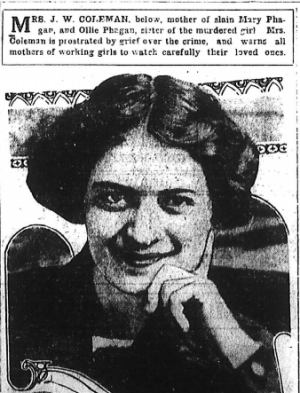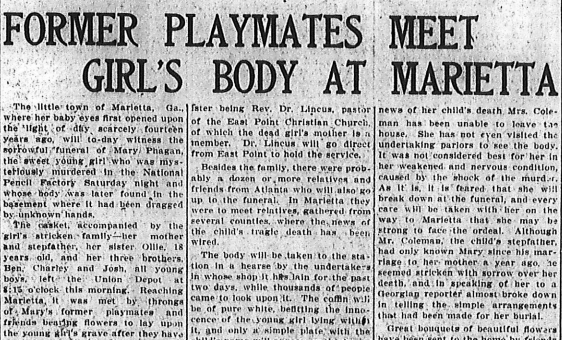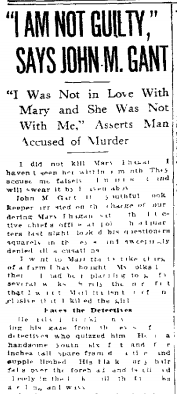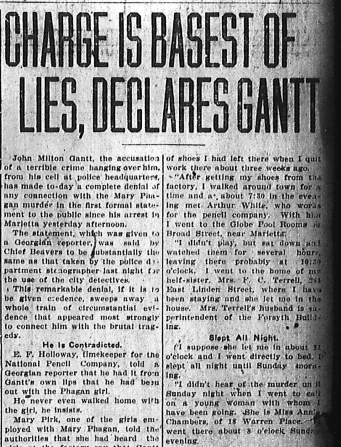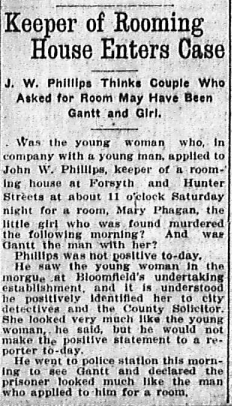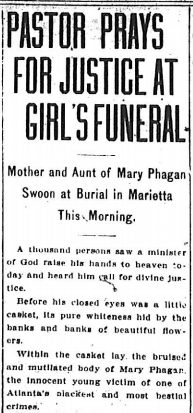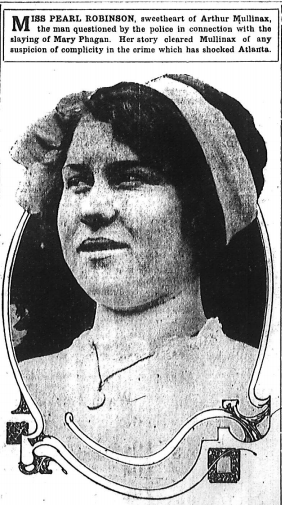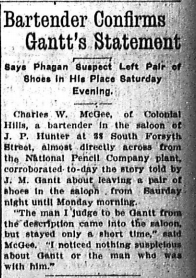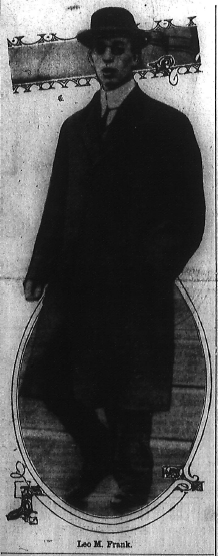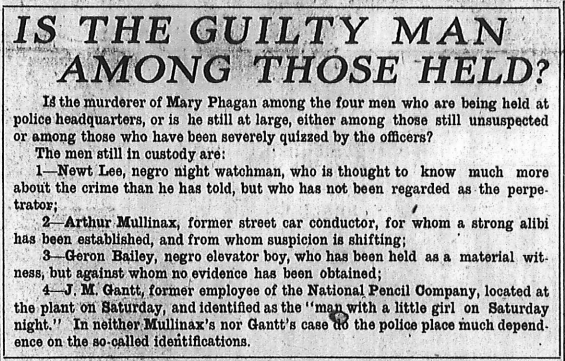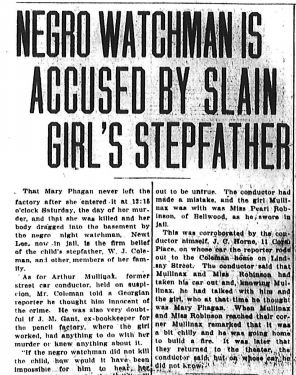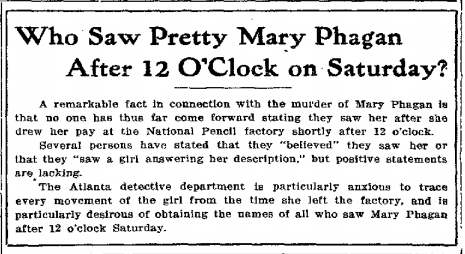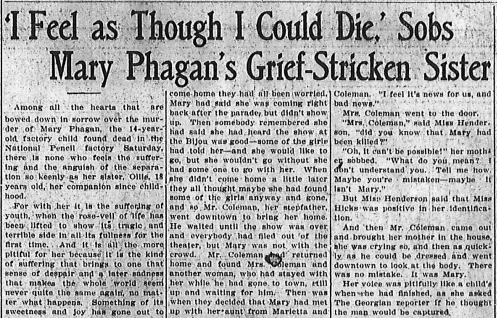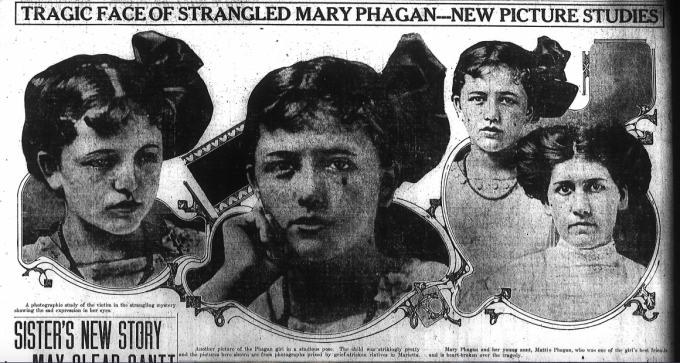
A photographic study of the victim in the strangling mystery showing the sad expression in her eyes. Another picture of the Phagan girl in a studious pose. The child was strikingly pretty and the pictures here shown are from photographs prized by grief-stricken relatives in Marietta. Mary Phagan and her young aunt, Mattie Phagan, who was one of the girl’s best friends and is heart-broken over the tragedy.
Another in our series of new transcriptions of contemporary articles on the Leo Frank case.
Atlanta Georgian
Wednesday, April 30th, 1913
F. C. Terrell, 284 East Linden Avenue, told a Georgian reporter to-day that his wife had declared to him that she did not tell the truth to the detectives and Georgian reporters to whom she had said that she did not know where J. M. Gantt, accused of the murder of pretty Mary Phagan, was on Saturday night.
When seen soon after the discovery of the deed, Mrs. Terrell stated that Gantt, who is her half brother, had left her home where he had been for the past seven years, three weeks ago, presumably to go to California and that she had not seen him since.
“Most certainly he was in his room here Saturday night,” declared Mrs. Terrell to a Georgian reporter to-day. “He came in at 11 o’clock.” Continue Reading →

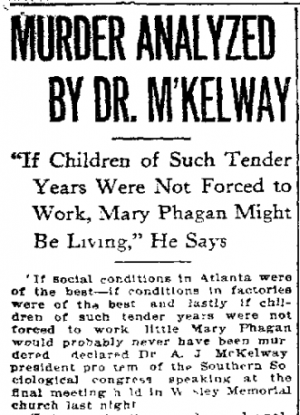
![John M. Gantt, former bookkeeper of the National Pencil company, and acquaintance of Mary Phagan, who is under arrest, and was put through a gruelling [sic] third degree last night at police station. He maintains his innocence.](https://www.leofrank.org/wp-content/uploads/2016/03/Pinkertons-Hired-to-Assist-Police-Probe-the-Murder-of-Mary-Phagan-300x461.png)
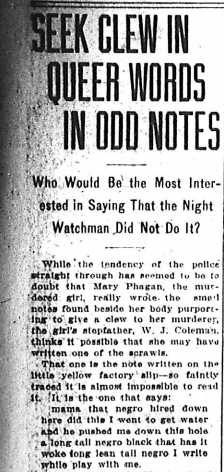
![Gantt reading murder warrant [John M. Gantt was a family friend of Mary Phagan's and was accused of being "infatuated" with the young girl. He was let into the factory on Saturday to retrieve pairs of shoes he had left there prior to his leaving the company. Newt Lee accompanied him as he retrieved his shoes and left Saturday afternoon -- Ed.]](https://www.leofrank.org/wp-content/uploads/2016/02/Factory-Employe-May-Be-Taken-Any-Moment-300x483.png)
